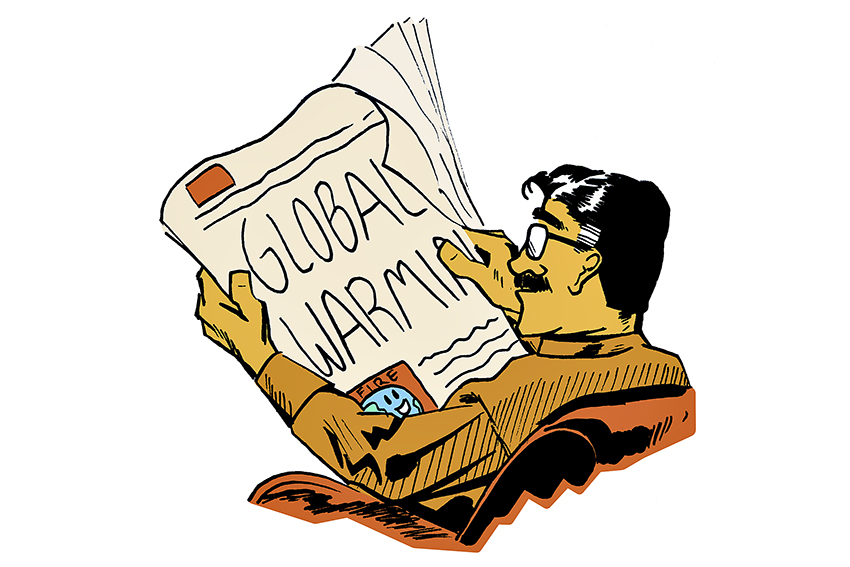Despite the mounting scientific evidence toward human-induced global warming, misrepresentation of climate change science continues to affect public perception.
According to Megan Raby, history professor and science historian, misrepresentation of climate change science predates back to 1988. At the time, public awareness of the issue was growing due to the congressional testimony of atmospheric physicist James Hansen and the formation of the Intergovernmental Panel on Climate Change. As momentum to address climate change began to build, a white paper by the George C. Marshall Institute entitled “Global Warming: What Does the Science Tell Us?” began to circulate at the White House, Raby said.
“(The paper) argued that the current warming trend was a result of increased solar activity, not industrial emissions,” Raby said. “Now, from a scientific and logical standpoint, it is pretty easy to debunk — like the many similar documents that have followed it over the decades since, it overemphasized (the) level of scientific uncertainty and used cherry-picked data … to make it seem as if it was simply summarizing peer-reviewed research.”
According to Raby, one issue with the communication of climate change science in the United States is that it is presented as having two sides, making it seem like both sides are equivalent. Raby suggested that it may stem from the “equal-time rule” in broadcasting. This rule, which goes back to 1927, requires stations that broadcast a political candidate to provide equal media time to opposing candidates.
“Being ‘fair’ to ‘both’ sides is a policy that might make sense in a two-party election, but not in evaluating science,” Raby said.
Kristopher Wilson, journalism senior lecturer and science communicator, teaches journalism students how to navigate the intricacies of climate change reporting. He encourages students to accurately represent the weight of evidence in their coverage of the topic, instead of zooming in on skeptics who represent a small fraction of climate scientists.
“While over 97 percent of climate scientists agree that climate change is happening and, more importantly, attribute that change to human activities, recent surveys show that only about half of Americans believe that scientific consensus, meaning something is contaminating the communication of that science to more general audiences,” Wilson said.
Some of the miscommunication can be attributed to misinformation campaigns from special interest groups, who have mimicked strategies from tobacco companies to deny scientific findings and inflate uncertainties, Wilson said. On top of that, climate change science is complex and not easily relatable to general audiences.
Joshua Busby, associate professor of public affairs, said that climate change denial is more pronounced in the policy space than in the media and is heightened by ideological differences between political parties. Ideological blinders can make people immune to evidence that doesn’t support their view, he added.
Politicians can continue to indulge in climate change denial as long as they don’t get punished by their voters, Busby said. However, they would be forced to change their tune if they faced stinging electoral defeat. If voters who care about climate change mobilize on a large scale to voting polls, politicians may have no choice but to take action. But the problem is that politicians rarely get kicked out of power over environmental issues, which tend to be low priority for most voters.
Meanwhile, the clock is ticking.
“We are already seeing the effects now in the record loss of arctic sea ice, stressed ecosystems and extreme weather,” Raby said. “The longer we wait to act, the more uncertain the future and the more difficult it will be to adapt.”















